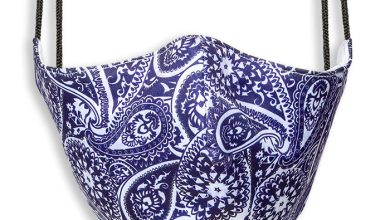The Upsides of a Low-Carb Diet

Numerous people start a low-carb diet with the goal of losing weight, but they soon discover the numerous additional health benefits that come with doing so. Yep, you guessed that correctly. The elimination of visceral fat and improvement of general health are only two of the many benefits of adopting a low-carb diet. To help you decide whether or not a low-carb or ketogenic diet is right for you, we’ve outlined the benefits below. Cutting back on carbohydrates is one of the most effective strategies for combating and reversing obesity, according to studies.
Instead of glucose, fat is burned.
The ketogenic diet dramatically reduces carbohydrate intake to trigger ketosis, a metabolic process that uses stored body fat for energy rather than the carbs in the diet. Dieters who cut back on carbohydrates while upping their fat consumption enter a metabolic state called ketosis, which helps them shed pounds and keep them off. Increased fat mass and blood triglyceride levels occur from the body’s stubbornness to release fat for energy when there is a surplus of carbohydrates and insulin. On a ketogenic diet, glucose levels are depleted and fat is instead used as fuel. Lower levels of cholesterol and triglycerides are the end outcome. Carbohydrate intake on a ketogenic diet typically hovers around 20 grams daily. If you’re overweight or have a lot of weight to lose, you may discover that more restrictive diets work best for you. The ketogenic diet has extremely few carbohydrate restrictions. A person who regularly engages in anaerobic activity, such as weightlifting, will have a substantially higher carbohydrate tolerance than a sedentary person.
Helps You Shed Pounds
Adopting a low-carb or ketogenic diet is most commonly done for weight loss. This eating pattern would not have gained such popularity if it did not lead to substantial weight loss. If you’ve tried and failed at standard methods of weight loss such as reducing calorie intake, eating less, and increasing physical activity, a low-carb diet may be the solution. A low-carb diet is highly effective, even when other diets have failed. It’s possible that you’ll need to experiment with your carb intake on the ketogenic diet or another low-carb plan before seeing results, but it’s quite improbable that this diet won’t work.
It decreases water retention.
Water weight loss is a common side effect of low-carb and ketogenic diets, especially in the first few days or weeks. Muscle glycogen levels are depleted when glucose consumption is restricted for several days. Because glycogen stores water, a decrease in glycogen levels results in less water retention.
Enhances Hormonal Performance
A study comparing the psychological and hormonal effects of nutrition on women with hormonal polycystic ovarian syndrome (PCOS) was undertaken by researchers from various universities worldwide. Two groups of subjects were used, with one eating a high-protein, low-carbohydrate diet and the other the opposite. After 16 weeks, those who followed the high-protein, low-carbohydrate diet reported significantly less depression and higher levels of satisfaction with life.
In conclusion, ketosis, a metabolic state in which stored fat is used as the body’s source of energy, is induced by low-carb diets, aiding weight loss. When followed properly, a low-carb diet can effectively control hunger levels without sacrificing fullness. The diet also aids in digestion, metabolism, and cognitive performance. The low-carb lifestyle has helped many of individuals overcome obesity and lead healthier lives; it is not a passing trend. Perhaps you will experience the same thing. To help you get started on your ketogenic fitness journey, we’ve compiled a list of the best low carb snacks.






